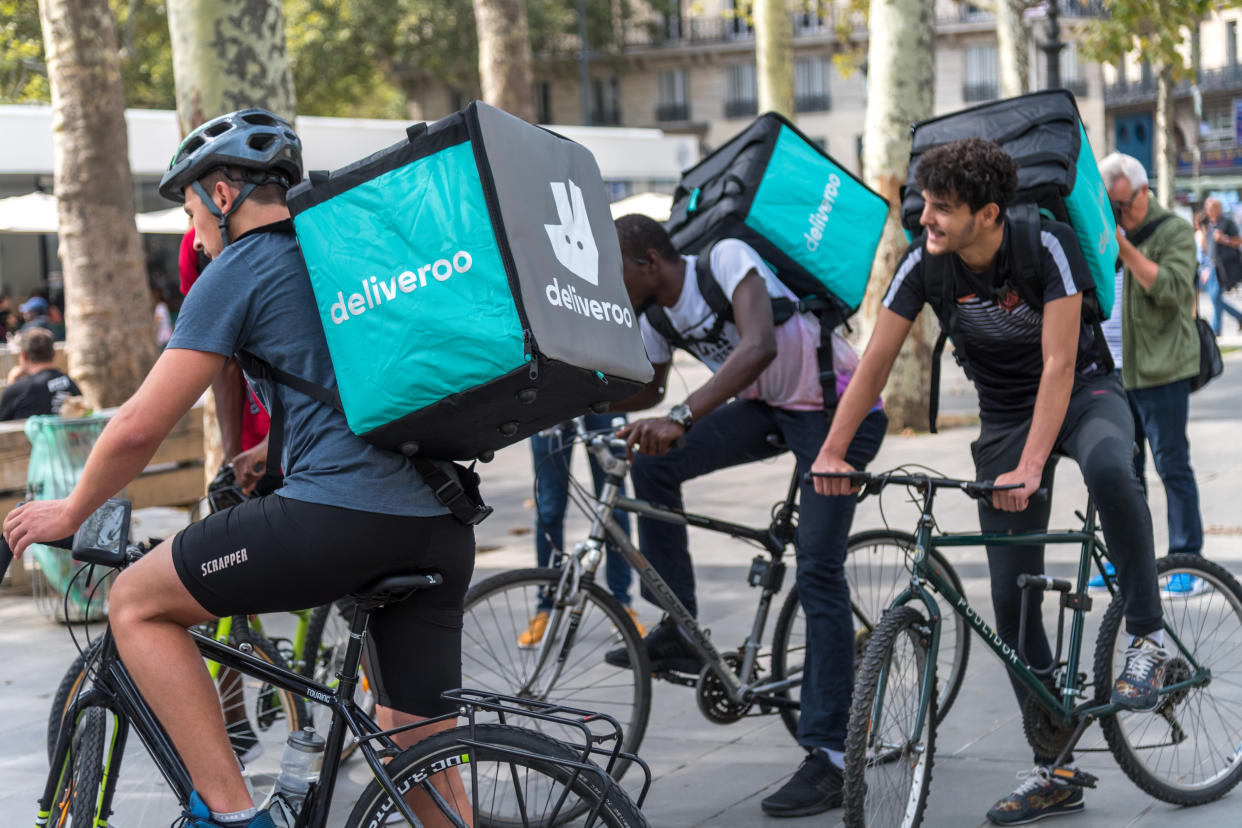Do you have any rights if you're self employed?

The number of people in the UK who are self-employed may be higher than you think.
According to official government figures published this month the number of self-employed workers increased by 25,000 to 4.81 million between July and September.
That’s 15% of all workers, or almost one in six.
If you work in the gig economy you’re probably self-employed
A whole lot more people were designated self-employed this week in a landmark legal case.
Deliveroo riders have been ruled self-employed by labour law body the Central Arbitration Committee.
The Independent Workers Union of Great Britain had been fighting for the riders to get workers’ rights, such as holiday pay, the minimum wage and pensions contributions.
Defeat means they’re left with practically none.
MORE: Autumn Budget: six things we already know
What rights do self-employed people miss out on?

If you’re self-employed you do not share the employment rights of employees, even if you’re doing a similar job for an organisation.
So what rights do self-employed people miss out on?
They get no sick pay, holiday pay or maternity leave. There’s no redundancy payout for them or the right not to be unfairly dismissed.
They’re not eligible for the National Minimum Wage and they can forget about rest breaks or limits on night work.
Why are so many people self-employed?
A lot of people have no choice, as Deliveroo drivers have discovered this week.
A lot of firms operating in the so-called gig economy appear to prefer self-employed workers as it reduces costs and responsibilities.
Others have been made redundant from full-time jobs and end up picking up bits and pieces of work when they can.

MORE: The Little-known bank scam costing people thousands of pounds
But some people do prefer to be self-employed mainly because of the flexibility.
They can, in theory, work when they want, whether they arrange jobs around childcare, or fit them around other activities.
It also often means they can work for a variety of different firms and do a number of different jobs.
And some people simply like the idea being their own boss.
Do self-employed people have any rights?
If you sign a contract with an employer it should include some basic rights.
Some short-term work is even on a PAYE basis, which means workers will qualify for holiday pay and other benefits.
But most self-employed people have no contracts and no rights, apart from two basic ones.
MORE: £100 for switching to green energy: this week’s deals and discounts
First, whoever employs you must look after your health and safety. For instance, you shouldn’t be asked to do something that’s unsafe.
Second, you have the right not to be discriminated against. Those rights are the same for everyone.
In the UK it is against the law to discriminate against anyone because of age, marital status, pregnancy, disability, race, religion, sex, sexual orientation or gender reassignment.
If you are a self-employed person and you believe that discrimination is damaging your chance to work, get help at your local Citizens Advice Bureau. The charity has a lot of advice here.
Pension matters

It’s also worth thinking about what happens when you retire.
Self-employed people have no company pension so need to set up their own saving for retirement.
They do have the right to a state pension but only if they pay National Insurance contributions.
That means it’s crucial to register with HM Revenue & Customs.
There are details of current National Insurance rates that self-employed people must pay here.


